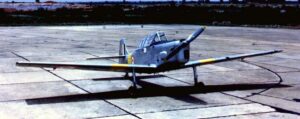My previous story titled “The day I flew my dad’s Car” started with the sentence “It was the year of the lord……..” Well this one is also form the same year of the lord. It seems that 1979 was a very eventful year. It was eventful indeed, as this was the year when I started flying (or rather started learning how to fly), this was the year I earned my Wings and also got commissioned in the Indian Air Force. These events changed my life, making the next forty years most enjoyable ones.
This story is about my tryst with the HT-2 aircraft (I always lovingly called it Dalda Tin aircraft). Well that was the first impression one got on seeing it. But looks can be deceptive and in this case it was true. HT – 2 (Hindustan Trainer – 2) was one lean mean flying machine. This machine had deflated the ego of many an ace pilots by rubbing their nose into the dirt or by giving them a swinging time (literally). HT-2 was a very simple machine with mechanical controls but a complex one to control. The machine seemed to have a mind of its own and reminded one of bronc riding rodeo. It is said that if one can drive on Indian roads, he or she can drive anywhere in the world. Similar thing can be said about HT-2, if you can fly the HT-2, you can fly any aircraft in the world.
Continue reading “152: My Tryst with HT-2 Aircraft: The Day God Flew With Me”


